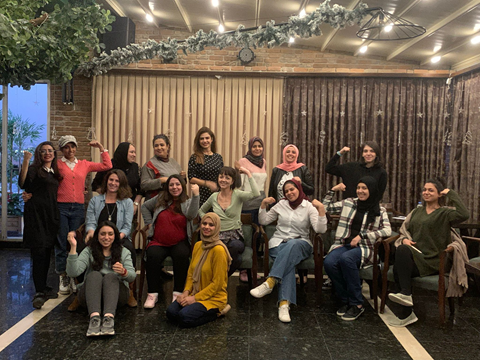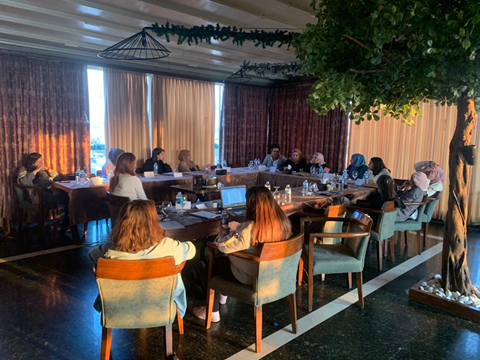The frequently heard feminist cry ‘the personal is political’, never rung truer than the afternoon we were all sitting together in a hotel conference room in Erbil, Iraq. The bright orange sun was setting over the desert-like colours of Ankawa. During the lunch break, music was played and the room was filled with dancing and singing but now, as the last sun rays shone through the windows, a feeling of heaviness swept through the room. A group of women activists from different parts of Iraq were sharing their stories, their rivers of life.
Stories of pain and trauma echoed around the walls, as we all quietly listened to each woman. Every story was different, but common threads tied them all together. What was clear was their experiences were not the outcome of their individual choices or lives, but part of a dominant patriarchal system. These were not ‘personal’ or ‘private’ problems, these were public, political problems that need voicing, acknowledging, and transforming.

We were in Erbil for a feminism training as part of a program called Feminist Peace Leaders. The program began in 2021, and in November we were finally able to meet in person. Feminist Peace Leaders is a cross-country program in Iraq, whereby the crucial roles women played in the revolutions in both countries are transformed into impactful and meaningful participation in peacebuilding.
In December 2019, when we started designing this program, the word ‘feminism’ was contentious. In Iraq, before the October revolution, to publicly call yourself a feminist would mean putting your life at serious risk. Now, just two years later, all the women coordinators of the project were proudly standing up and declaring themselves as feminists. This may not seem like a huge feat for some, but in the context of a conservative society whereby, in many parts of the country women’s roles are still very much isolated inside the house, it is huge progress in a short span of time. The October revolution in Iraq played a big role in transforming societies view of women. Historically in Iraq (as with most of the world) public space has been a male-dominated sphere. Those women that have been able to be politically active have largely come from the educated elite or have had politically active family members who involved them. What was so remarkable about women’s participation in the October 2019 protests, besides the sheer number, was the diversity of women. There were women of all different background and ages participating in a myriad of ways.

Women need increased access and ownership of public spaces, and the October protests illustrated this for many. The endless stories of violence, inequality, and oppression that women experience in private spaces, need transforming into public political actions and campaigns to ensure that women’s voices are not just heard, but that they are given agency, access, and power to make change. We hope that all the women activists and coordinators in Feminist Peace Leaders are the seeds of that change.




